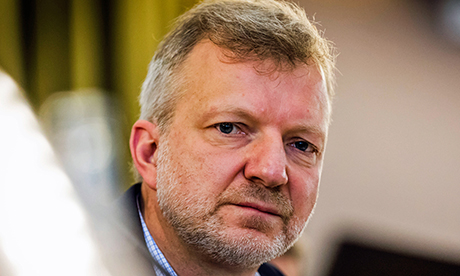A renowned historian has asserted that the hierarchical power structures within the Catholic and Protestant churches are significant factors contributing to sexual abuse cases.
In a recent article in the German website Herder Korrespondenz, Thomas Großbölting (pictured) highlights the clergy’s authority within the religious framework as facilitating the exploitation of children and young people.
“It is the position of the clergyman in the religious system of meaning that enables the pedosexual perpetrator to gain power over children and young people and then abuse them” writes Großbölting.
Central to Großbölting’s argument is the need to address the inflated status and self-importance often attributed to clergy members and the overarching power structures within church institutions.
Großbölting emphasises that breaking these patterns is crucial in effectively addressing the ongoing abuse scandal. Moreover, he suggests that similar power imbalances may exist within other religious traditions, highlighting the universality of this issue.
“In this way, they are strongly connected to the spiritual perpetrator as a religiously distinguished man – and in the worst case, at the mercy of him.”
This manipulation represents a distortion of the clergy’s intended role, regardless of denominational differences.
Denomination specific challenges
Furthermore, Großbölting identifies specific challenges within each denomination.
In Protestant churches, where power structures may be less overt, he warns of the danger of overlooking or denying existing imbalances, creating a culture of silence and hindering accountability.
On the other hand, within the Catholic Church, issues such as celibacy and doctrinal attitudes towards homosexuality present additional complexities.
A critical aspect of Großbölting’s analysis is the disparity in transparency surrounding sexual abuse cases. He criticises the Protestant Church for its lack of comprehensive investigations, contrasting this with efforts made within Catholicism.
“While the work in the Catholic Church created a basis on which studies and practical measures can build, this has been neglected in the Protestant Church” said Großbölting.
Großbölting urges leaders within the Protestant Church to take decisive action to address these shortcomings and learn from the progress made by their Catholic counterparts.
